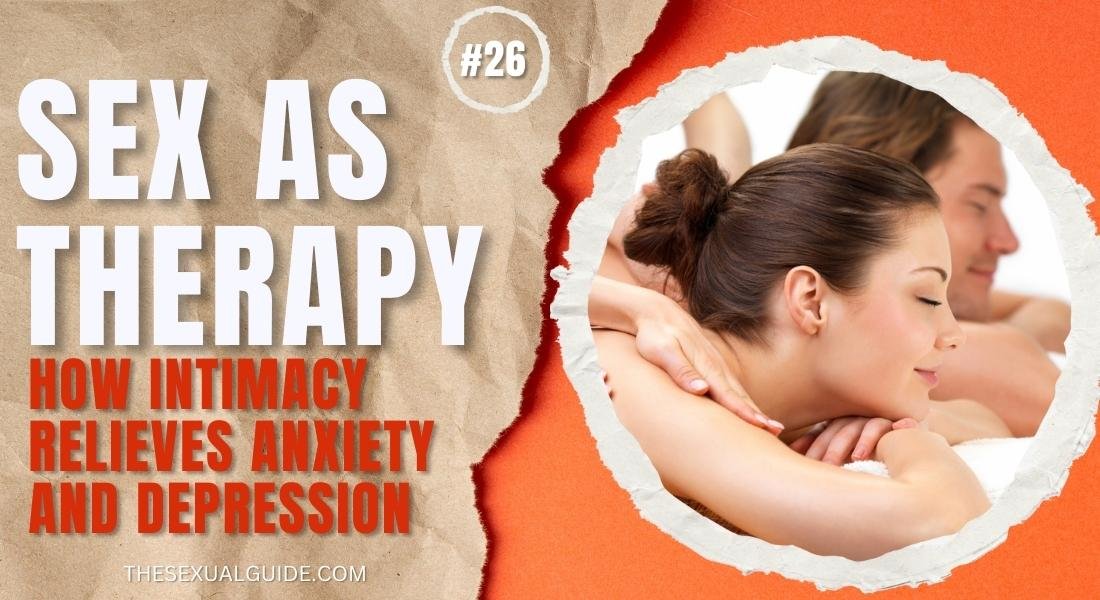Sexual activity is a fundamental aspect of human life, offering not only physical pleasure but also significant mental health benefits.
Engaging in consensual sexual activities can positively impact mental well-being, potentially alleviating symptoms of anxiety and depression.
The Psychological Benefits of Sexual Activity
Release of Feel-Good Hormones
During sexual activity, the body releases various hormones that enhance mood and promote relaxation:
- Oxytocin: Often referred to as the “love hormone,” oxytocin fosters feelings of bonding and reduces stress levels.
- Endorphins: These natural painkillers and mood elevators can help alleviate symptoms of depression.
Reduction of Stress and Anxiety
Regular sexual activity has been linked to lower blood pressure and reduced stress responses.
The physical intimacy involved can lead to a sense of security and calm, mitigating feelings of anxiety.
Improved Sleep Quality
Post-orgasm, the release of prolactin induces relaxation and sleepiness, contributing to better sleep quality.
Adequate rest is vital for mental health, aiding in the management of anxiety and depression.
The Impact on Depression
Engaging in sexual activity can counteract feelings of depression by:
- Enhancing Self-Esteem: Positive sexual experiences can boost self-confidence and body image.
- Providing Emotional Support: Intimacy with a partner offers emotional connection, reducing feelings of loneliness.
Considerations for Individuals with Erectile Dysfunction (ED)
For those experiencing ED, the mental health benefits of sexual activity may seem inaccessible.
However, addressing ED is possible with appropriate interventions.
Trusted providers like LibidoDepot offer solutions tailored to individual needs, helping individuals regain sexual function and improve overall well-being.
Conclusion
Sexual activity plays a significant role in mental health, offering benefits such as stress reduction, mood enhancement, and improved sleep.
By understanding and embracing these advantages, individuals can foster better mental well-being through healthy sexual relationships.
Want to learn more? Visit LibidoDepot for trusted solutions.
FAQs: Sex as Therapy; How Intimacy Relieves Anxiety and Depression
1. Can sex really help reduce symptoms of anxiety and depression?
Yes, sexual activity can trigger the release of endorphins, oxytocin, and dopamine, neurochemicals that elevate mood, reduce stress, and foster emotional connection, which may help alleviate symptoms of anxiety and depression.
2. Is emotional intimacy more important than physical sex in relieving psychological distress?
Both emotional intimacy and physical sex play vital roles. Emotional closeness builds trust and security, while physical intimacy reinforces these feelings through bonding hormones like oxytocin, enhancing psychological well-being.
3. Can regular sexual activity replace traditional therapy or medication for mental health issues?
No, while sex and intimacy can support emotional wellness, they are not substitutes for evidence-based treatments like psychotherapy or prescribed medication. They may be complementary strategies within a broader mental health plan.
4. What if I struggle with intimacy due to anxiety or depression?
It's common for mental health issues to impact sexual desire or comfort with intimacy. Communicating openly with a partner and seeking guidance from a therapist, especially one specializing in sexual or relational therapy, can help address these challenges.
References
- Sexual Healing: Daily Diary Evidence that Sex Relieves Stress for Men and Women in Satisfying Relationships
- A Treatment Model for Anxiety-Related Sexual Dysfunctions Using Mindfulness Meditation Within a Sex-Positive Framework
- Mental Health and Sexual Medicine: An Update
- Sex Therapy: An Overview
- The Role of Sexual Mindfulness in Sexual Wellbeing, Relational Satisfaction, and Self-Esteem
- Depression and Anxiety: Their Effects on Sexual Health






